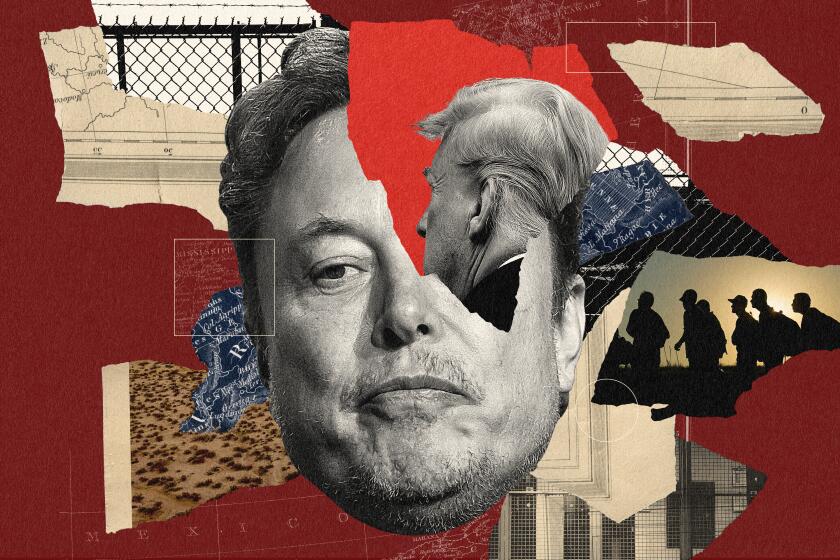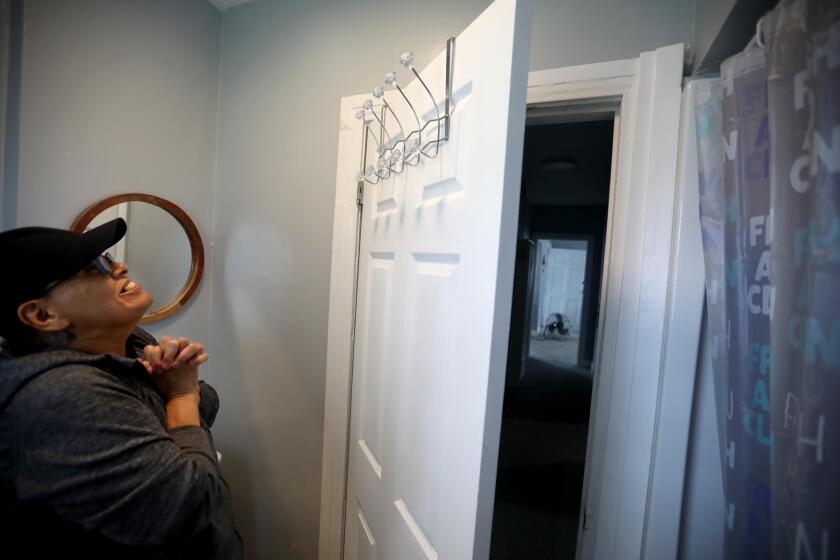Pisello’s Tax Evasion Trial Begins : Defendant Claims Funds From Record Deals Were Loans
The tax evasion trial of reputed organized crime figure Salvatore Pisello began Tuesday in U.S. District Court in Los Angeles with the government prosecutor claiming that Pisello evaded taxes on about $450,000 in unreported income for the years 1983 to 1985.
In his opening argument, Marvin L. Rudnick, a special attorney for the Los Angeles office of the Justice Department’s Organized Crime Strike Force, charged that most of the unreported income was earned through a series of record industry transactions that resulted from Pisello’s “relationships” with executives of MCA Records.
Pisello’s attorney, David Hinden, countered that Pisello owed no substantial taxes on the money he received from the record transactions, primarily because the funds were in the form of loans to be repaid and were therefore not taxable as income.
“I do not believe the government will be able to prove a single count of its (three-count) indictment,” Hinden told U.S. District Court Judge William Rea, who is presiding over the non-jury trial.
The Los Angeles Strike Force’s investigation of Pisello’s record industry activities began in 1985, when authorities learned that he had engaged in a number of business deals with MCA Records. Pisello has been identified by federal authorities as a suspected member of New York’s Gambino crime family.
MCA executives have said they were unaware of Pisello’s alleged ties to organized crime at the time they entered into the deals.
According to authorities, information developed in the Pisello investigation led to a broader grand jury probe into alleged payola practices and suspected organized crime infiltration of the record industry.
There was no mention of organized crime on Tuesday, however. Prosecutor Rudnick sought to portray Pisello as a career tax cheat with a long history of converting income into cash and cashier’s checks and concealing it “in hidden corporations which filed no tax returns on receipt of funds.”
Pisello was convicted of income tax evasion in March, 1985, and was sentenced to two years in prison. According to Rudnick, some of the unreported income in the current case was money “he was earning while appearing in this very courtroom” on the previous charges.
He claimed that Pisello also owes the Internal Revenue Service more than $400,000 from a 1979 tax court ruling but has never made any attempt to pay the bill.
The prosecution’s first witness in the case was Joseph Robinson, the president of Sugar Hill Records, a now-defunct New Jersey company that paid Pisello more than $206,000 in 1984 for his help in arranging several business deal with MCA Records.
Attorney Hinden claimed that the money from Sugar Hill--as well as another $86,000 paid to Pisello by MCA in 1984 and 1985--”constituted loans and was treated as such” by both MCA and Sugar Hill.
More to Read
More to Read
More to Read
Start your day right
Sign up for Essential California for news, features and recommendations from the L.A. Times and beyond in your inbox six days a week.
You may occasionally receive promotional content from the Los Angeles Times.






